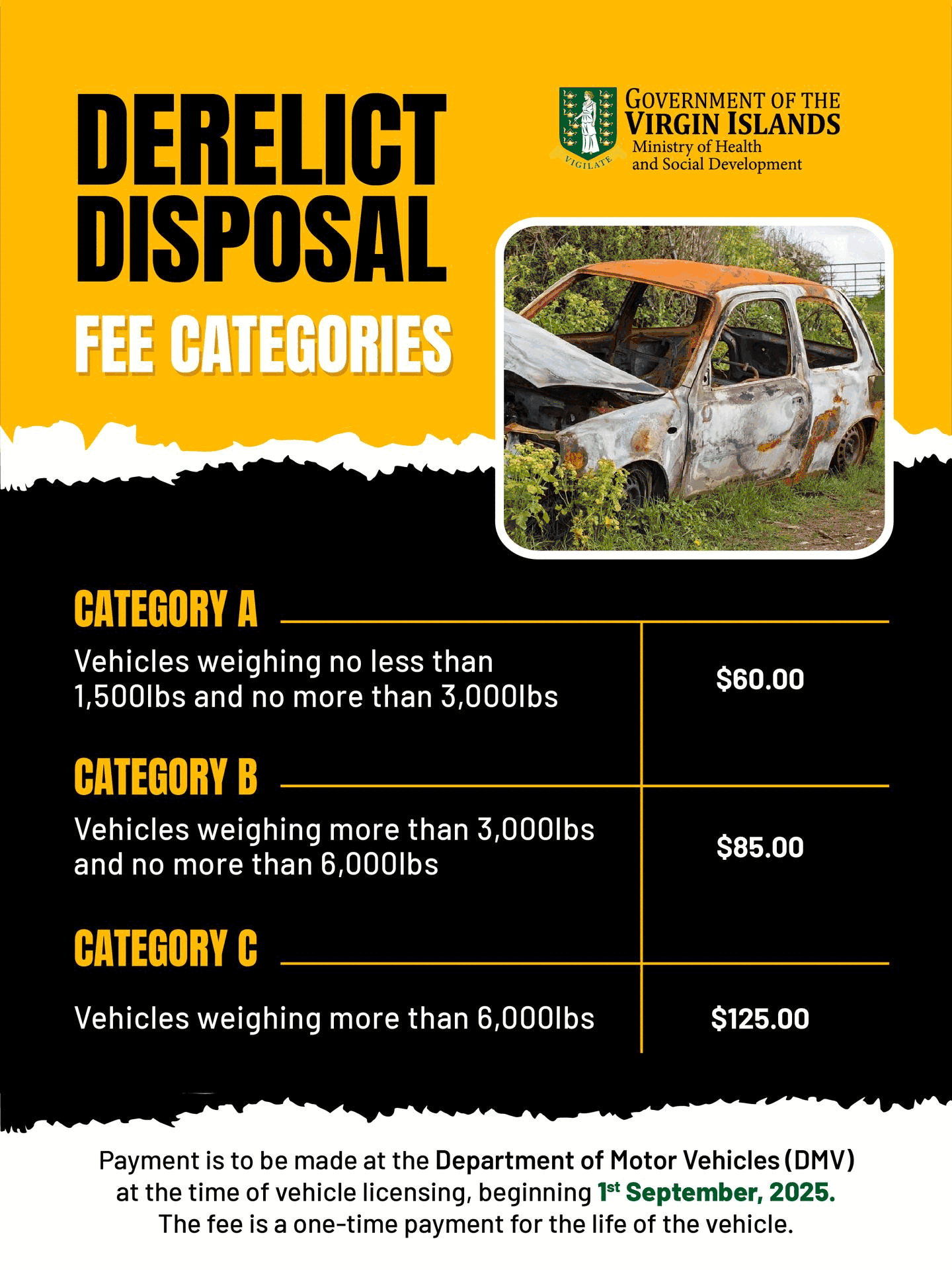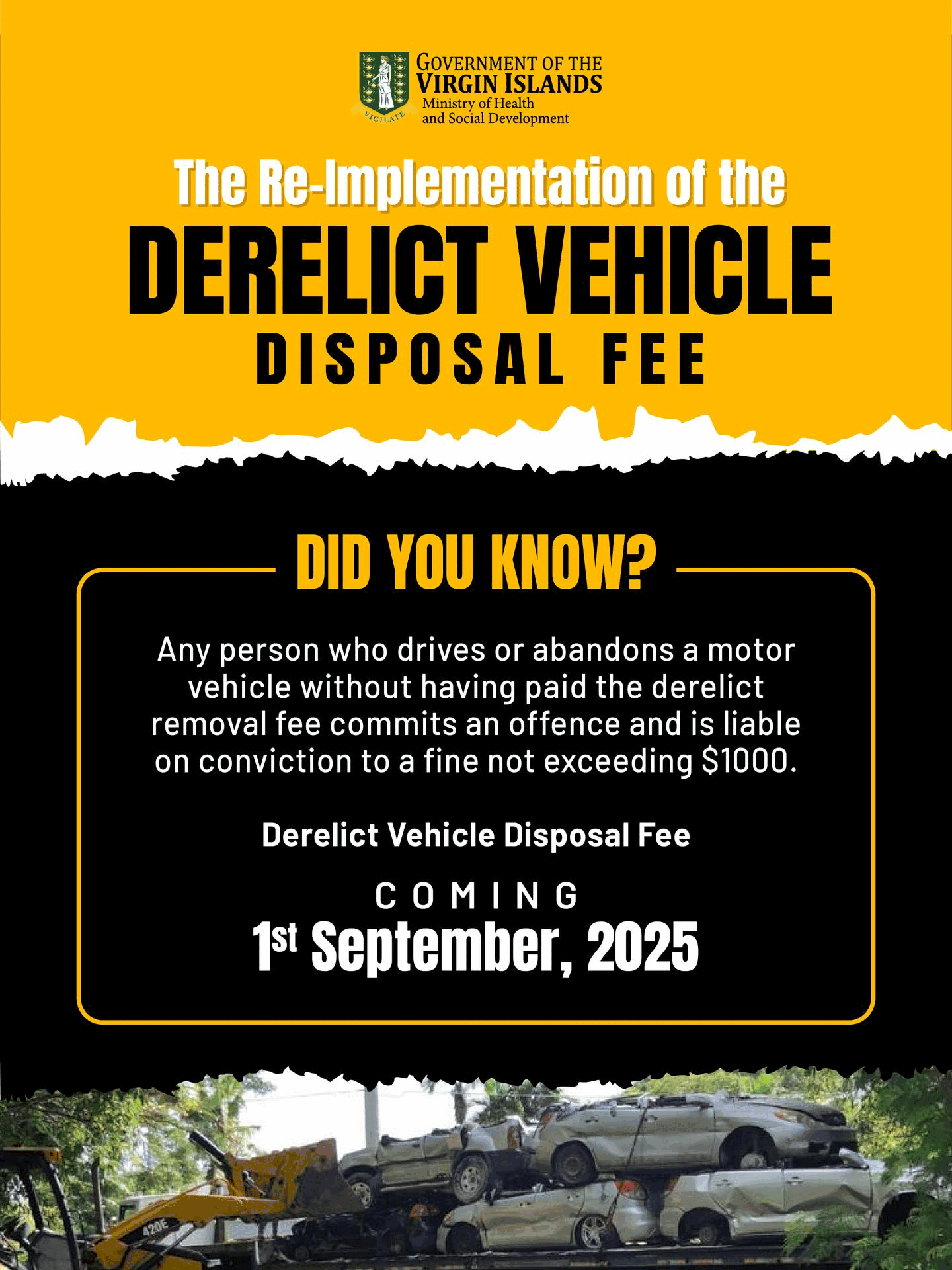USVI Gov Mapp wants to shut down gov’t for 1 day every 2 weeks

FREDERIKSTED, St Croix, USVI— US Virgin Islands (USVI) Governor Kenneth E. Mapp at a press conference held at Government House today, February 22, 2017 revealed that his administration has been considering shutting government operations down one day every two weeks until September 30, 2017 to help keep the government afloat.
The announcement represents a dose of reality for the administration as it struggles to offset a $110 million budget deficit, and as the Government of the Virgin Islands remains shut out of the bond market that had for years bailed it out. And it comes at a time when the community has been furious about the governor’s spending habits, which some contend give little consideration to the plight of residents, many of whom are living paycheck to paycheck and must cutback when funds are low.
The announcement also represents an about-face for the governor, whose commissioner of Finance, Valdamier Collens, had revealed to The Consortium that such austerity measures were being drafted. Mr. Mapp, however, had denied that he’d ever mentioned furloughs, layoffs or four-day work weeks to Mr. Collens.
Schools would be affected
Stressing that the announcement of consideration of actions to be taken was not a decision, the governor said, “We have on the agenda closing the government one day every two weeks until September 30. That could include closing the schools for a full day on a Friday.”
Mr. Mapp said that employees at the government’s various departments and agencies could be sent home at 12 noon every Friday until September 30, “which means that you would get paid, literally, 72 hours of the week as opposed to 80 hours. These are not decisions, these are what’s on the table.”
The governor said that lights at all recreation centers territory-wide would be turned off by 8:00 p.m. every night. He said the administration was prepared to order the V.I.P.D. as well as the Bureau of Corrections and the Fire Service, to reduce all overtime outlay by 80 percent. “What that means is that there could be shifts where fire houses would not be manned for an 8-hour period, but the response would come from other fire houses that are opened and manned,” he said. “It means that overtime and special operations in the police department could be somewhat curtailed because the level of overtime disbursement must be reduced. In addition, the Bureau of Corrections may have to look at the transfer of additional persons out of the territory from the penal institution, so that the staff that exists would be able to adequately cover the shifts for those prisoners that remain on duty.”
Mr. Mapp said all travel and expenditures from the general fund have been curtailed. He said the cuts would affect every government employee, beginning with him. Government employees whose travel and pay are funded by the federal government would not be affected, the governor said.
“This is imperative as we try to close the gap and do it in a manner that’s least painful,” he said.
Breach of contract?
Being mindful of potential court challenges that may arise because of the government’s pending decision to cut work hours, Mr. Mapp, referring to the Department of Education, said that the law requires 180 instructional days or 1085 hours for teachers. “That’s the law,” he said. “But the law presupposes that there would be sufficient funding to cover that expenditure.”
“Lack of cash means non-ability to pay for; non-ability to pay for means that we will be unable to require public workers to perform,” the governor said.
Virgin Islanders employed with the government who are part of the United Steel Workers Union, hold a contract that explicitly mandates 8-hour work days and 40-hour work weeks. Part of the contract reads, “Employee shall be scheduled to work a normal period of forty hours within the work week. Each work day shall consist of eight consecutive hours.”
The cutback in hours being considered by the government would be a breach of contract.
Mr. Mapp stressed throughout his talk that the considerations were not yet active. He also mentioned 32nd Legislature senators who have so far supported his sin tax measure, stating that the implementation of the law would help in reducing the severity of the cutbacks.
“That’s going to have an impact in terms of our overall plan because the measures that the Legislature is working on, if they’re enacted in early March, then the revenues that we would expect between March 1 and September 30 would increase… the bridge would be reduced, hence the ability not to implement some of these more difficult reforms,” the governor said.
Mr. Mapp refuted an apparent editorial in a local paper that he said claimed the territory was suffering a financial collapse. Stating that the economy was experiencing growth, the governor pointed to a marginal decrease in unemployment, and a marginal increase — 0.2 percent — in the territory’s gross domestic product, according to U.S. Bureau of Economic Analysis. And separating the private sector from the government, Mr. Mapp said that the territory’s economy generates more than $3 billion annually, a suggestion that such activity was not a sign of a financial collapse.
“When we tell you that we have cash issues, you cannot take the position that the government has cash shortages so the economy must be collapsing,” he said, adding that the writer didn’t understand economics. “First of all, the government isn’t the economy, the government is a part of the economy. The private sector is the foundation of the economy, the fuel of revenues, that makes any community be able to function, and any government in a democracy be in a position to deliver services.”
But the governor failed to mention the territory’s swelling debt, which, when compared to Puerto Rico’s, is more than a third higher. Additionally, the USVI’s economy has contracted by significantly more than Puerto Rico’s, and both territories are borrowing to fill long-time massive budget gaps. Furthermore, while the USVI’s overall tax-supported debt at $2 billion is much lower than Puerto Rico’s $53 billion in tax-supported debt, per capita debt is about a third higher: $19,000 in the USVI compared with $12,000 for Puerto Rico. The territory’s bonds are currently at junk status, nearly crippling the government’s ability to go to the market in search of funding.
The governor attempted to end on a positive note, though, telling residents he remained confident that the territory would come out of the current fiscal crisis, but that it would take courage to effectively do so.
“I am confident that we will make it through this difficult time in the least painful way possible,” he said.











.png)










.png)








.jpg)








25 Responses to “USVI Gov Mapp wants to shut down gov’t for 1 day every 2 weeks”
It needs a major structural adjustment if it is to dig itself out of the widening economic hole that it is in . The structural adjustment(s) will be painful, requiring severe gut wrenching belt tightening. The proposed compressed work schedule (4x10) to cut cost through 30 September 2017 is a reasonable start. However, what happens starting 01 October 2017? Other gut wrenching belt tightening will be needed. Is there a lesson for the BVI from the USVI situation? It should be. The USVI should be a real case study for the BVI?
The other problem is that when Puerto Rico sneeze USVI catch a cold, but now PR has the flu heading for pneumonia and USVI has pneumonia heading for pleurisy. BVI still has a cold symptom heading for the flu, with a good chance of recuperation if they heed the warning signs and drink the good ole cure of chicken soup...listen to your constituents.. BVI there is a flood on its way....turn around don't drown. Learn for PR and USVI.
be safer and happier.